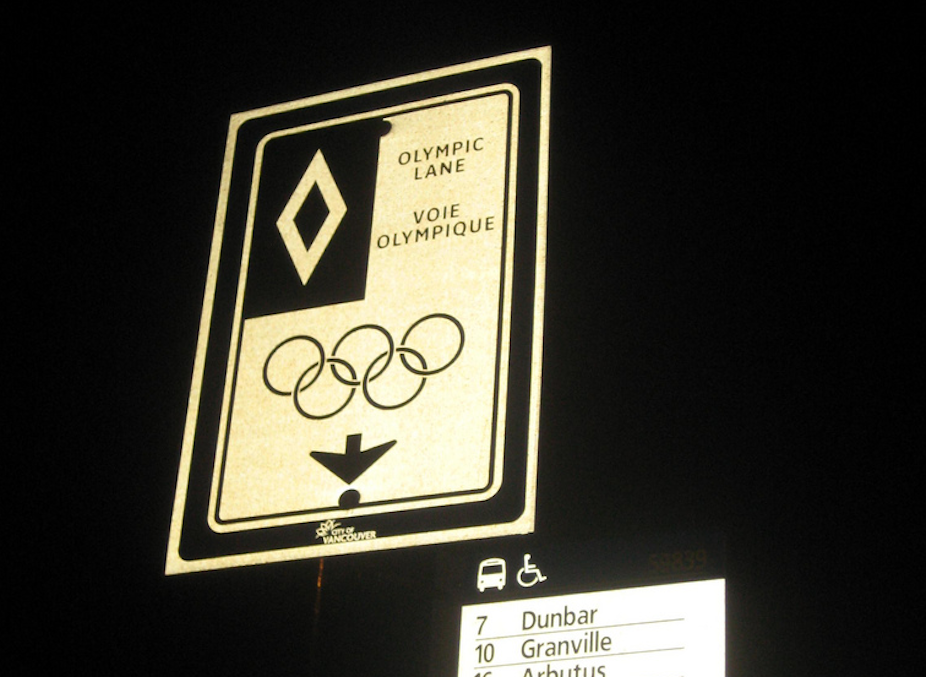The London Olympic Games open on July 27, but designating one lane on the M4 motorway between Heathrow Airport and Central London as an “Olympic Lane” for athletes, officials, sponsors and media has already sparked controversy.
One group of taxi drivers staged a protest on July 17 in Central London around the UK Parliament. The United Cabbies Group (UCG) is a relatively new trade association for taxi drivers, and appears to be more militant than the long-established Licensed Taxi Drivers Association(LTDA). The LTDA’s leader, John Mason, described the protest as “irresponsible”. The London Transport Commissioner, Peter Hendy, said the action was “trumped up and he had no sympathy”.
The LTDA asked to be allowed to charge the 22% evening premium all day during the Olympics. This was rejected by Transport for London on the grounds that it would penalise all taxi users across London and could have a negative impact upon the business community.
Planning for the London Olympics has focused heavily upon transport, following the widely reported transport failings in Atlanta in 1996 and Sydney’s introduction of “Olympic Lanes” in 2000 to guarantee safe, secure and reliable transportation for members of the “Olympic Family”.
This strategy was also adopted by Athens and Beijing, with the latter enforcing these 19 days prior to the opening ceremony. Athletes have been given much more consideration since Atlanta with a growing recognition of the needs of those competing in the Paralympics, which follow the Olympics.

In London there are dedicated lanes on one-third of the almost 300 miles of Olympic Route Network. These are designed for the exclusive use of 55,000 members of the “Olympic Family” each day.
Athletes and workers will be transported in 1500 coaches hired in from across the UK, while 4000 new BMW cars are being used to ferry officials and VIPs between venues and hotels. These are mostly driven by volunteer drivers.
London is a very busy city and heavily dependent upon its underground light rail, overground heavy rail and bus network to transport commuters, residents and visitors. Around £6.5B (nearly $AU10B) has been invested in transport infrastructure ahead of the Games. This forms the vast part of the Olympic legacy to the city. It will cascade into other regions of the UK, as rolling stock displaced from London replaces some elderly trains and buses in the provinces and provides much needed extra capacity around major cities such as Manchester, Leeds, Birmingham and Bristol.
There are expected to be 3 million additional journeys in connection with the Games on the busiest days. Great efforts have been made to encourage employers to allow their staff to work remotely from home or take annual leave during the Olympics. Many commuter train services from South East England are cancelled during the Games, as the trains are being deployed to run a high frequency shuttle service between St Pancras International (the central London terminus of the Eurostar Trans-European rail network through the Channel Tunnel together with numerous domestic services) and the Olympic Park.

The original aim was for the London Olympics to be the first “100% public transport games” but this now appears to be unachievable, as the taxi drivers claim that they are part of the public transport network but are being prevented from making pick ups in Olympic Lanes and making required left turns across Olympic Lanes to reach destinations.
This situation arises from the minority of Olympic Lanes which occupy the nearside lane. They are taking the place of existing bus Lanes which would normally be available to taxis, motorcycles, bicycles and buses. However some of these restrictions are being relaxed, according to Transport for London. TfL also claims that taxi drivers have been involved in negotiations since 2009.
The UK media is generally hostile to any restrictions on motorists’ rights to drive where and when they wish and takes an anti-public-transport stance. It has given high exposure to the taxi drivers’ claims and protests (two further protests are planned by UCG, but the police are likely to be much better prepared to limit their effect). It has also written up a few minor problems with coach transport for the first tranche of athletes arriving at Heathrow on Monday, exaggerating the delays actually experienced.
On balance, the transport planning appears to be working very well at present, with London 2012 Chairman Lord Coe reported to be “pleased with transport so far”. The real test will be when the first of nine million spectators arrive for the Opening Ceremony on July 27th.

